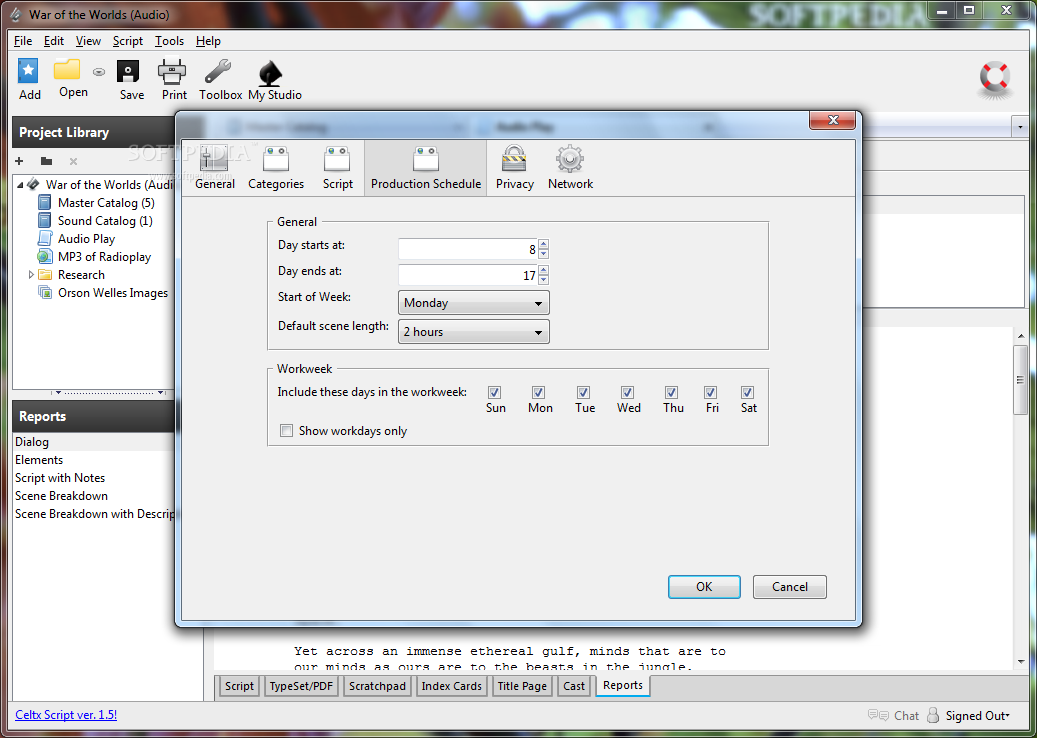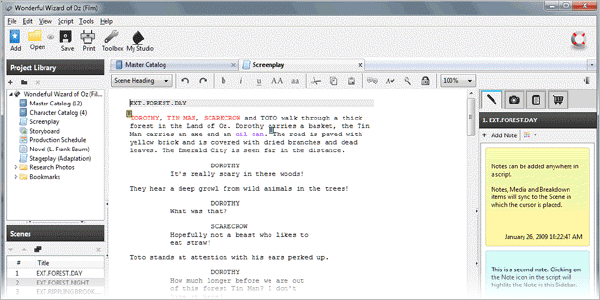
#Celtx file format install
On OS X, it is part of the poppler package: brew install poppler-utils In this case, if it's a text-based export from something like Final Draft, you can use the free and open source XPDF-based library pdftotext. Occasionally you'll get annoying PDFs that you can't automatically parse with a language like C, PHP, or Java. Or add to the require section of composer.json: "require": composer require azcoppen/screenplay-parser Use composer to add the package to your project vendor folder. Lists that can be copied and pasted into a breakdown very easily, to save time and effort. This library does one thing very simply: parse different types of script files to compile initial lists of scenes, characters, and props.

That means manually compiling a list of scenes, characters, locations, and props, that will be required - which takes DAYS, and is pointlessly inefficient and archaic, when any computer can parse the information in seconds. Directors re-write, producers annotate, while wardrobe, locations, effects, casting and others, need to produce a breakdown.

Once a script has been drafted by a screenwriter and financially green-lit for production, it is distributed to over 20 different film departments for marking up. Instead of wasting time dealing with these formats, come work on a better one! Overview ScreenJSON is an effort to get rid of the writing packages/modules like this so there's a universal interchange format that can be imported into any programming language or platform, and can also be mined for information.

The long-term future can't be about spaghetti-coding this stuff to deal with a dozen different proprietary file formats that are useless for doing anything meaningful. This package was a quick hack to get at the data inside Final Draft (XML), Celtx (RDF), Adobe Story (XML), Fountain (Markdown) and FadeIn (XML) files. Author: Alex Coppen ( Look at ScreenJSON instead.


 0 kommentar(er)
0 kommentar(er)
